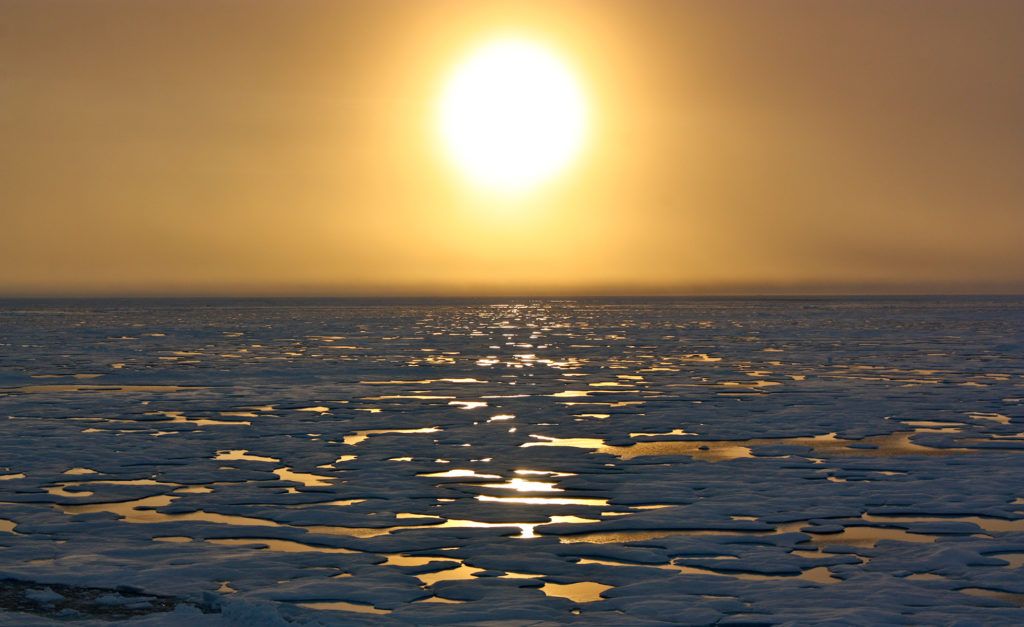
Scientists have found that ocean heat waves are rapidly increasing around the world, killing off kelp, corals, shellfish and other marine life. (Photo: NASA Goddard Space Flight Center via Flickr)
Our home planet operates like an intricately interconnected organism, with networks and processes, from minuscule to massive, coming together to create conditions conducive to human life. When systems from carbon, nitrogen and hydrologic cycles to ocean currents and atmospheric jet streams are relatively stable, climate and its effects remain stable.
We’ve upset the carbon cycle, mainly by burning too many fossil fuels over a short time — releasing massive amounts of carbon dioxide that had been stored for millennia into the atmosphere. Because all of Earth’s systems are interconnected, adding too much CO2 and other greenhouse gases to the air has trapped heat in, and the overheating planet is affecting everything from ocean currents to weather.
One worrying sign is the possible collapse of the Gulf Stream, officially called the Atlantic Meridional Overturning Circulation. Ocean covers 70 per cent of Earth’s surface, and moves heat from the equator to the poles, regulating climate and weather patterns. The Gulf Stream carries warm Atlantic water north where it cools and sinks, driving Atlantic currents. Scientists say fresh water from the rapidly melting Greenland ice cap and other sources could alter these currents, weakening the Gulf Stream to the point of collapse.
All these effects, in turn, would have their own impacts, creating feedback loops and tipping points as greenhouse gas concentrations in the atmosphere continue to rise.
A new study estimates this could occur between 2025 and 2095 if we don’t quickly reduce global carbon emissions. According to the Guardian, such a collapse, “would have disastrous consequences around the world, severely disrupting the rains that billions of people depend on for food in India, South America and west Africa. It would increase storms and drop temperatures in Europe, and lead to a rising sea level on the eastern coast of North America. It would also further endanger the Amazon rainforest and Antarctic ice sheets.”
All these effects, in turn, would have their own impacts, creating feedback loops and tipping points as greenhouse gas concentrations in the atmosphere continue to rise.
As for warming Atlantic waters, the ocean around the Florida Keys recently hit an all-time global record for surface temperature, at more than 38 C — as warm as a hot tub. Normal temperatures in the area range from 23 C to 31 C this time of year.
On the Pacific side, high temperatures in the Salish Sea off northeastern Vancouver Island have been cooking the kelp.
Scientists have found that ocean heat waves are rapidly increasing around the world, killing off kelp, corals, shellfish and other marine life. “The research found heatwaves are becoming more frequent, prolonged and severe, with the number of heatwave days tripling in the last couple of years studied,” the Guardian reports.
Because we rely on the ocean for so much — oxygen, food, medicine, carbon sequestration and climate regulation, recreation, transportation, storm protection — this damage affects us all.
The 2021 heat dome alone killed more than one billion marine animals off British Columbia’s coast. Because we rely on the ocean for so much — oxygen, food, medicine, carbon sequestration and climate regulation, recreation, transportation, storm protection — this damage affects us all.
The good news is that the world is finally starting to recognize how important the ocean is and how poorly we’ve treated it. Canada has joined many countries in committing to protect 30 per cent of its marine territory by 2030, and to help efforts to protect international waters. Government has effectively declared a moratorium on deep-sea mining and has set a goal for new national marine conservation areas.
Canada also joined other nations in signing a high seas treaty, which creates a legal framework to set up a network of marine protected areas in international waters and includes requirements for environmental impact assessments in areas beyond national jurisdictions.
But it’s not enough.
The sad state of the ocean is another symptom of our excessive lifestyles, fuelled by polluting, climate-altering gas, oil and coal. Taking patchwork approaches to addressing interconnected critical problems while trying to maintain our status quo economics and lifestyles is too little, too late. We must challenge all our outdated systems that propel overconsumption and waste, pollution and poverty.
We’ve inserted our relatively recent economic schemes into planetary processes we barely understand, elevating ourselves and our ideas above nature, justifying our rapid and destructive exploitation of everything around us. As we learn more about how nature’s networks interact and operate, we need to learn how to work with rather than against them.
The ocean is sending a stark warning. We don’t have much time.



